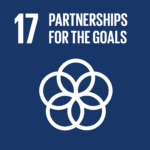An analysis by Climate Action Tracker found that the new 2035 pledges from Brazil, UAE, the US, and Switzerland are “not compatible” with a 1.5°C pathway.
The world’s climate ambitions have hit a roadblock. Nearly 95% of countries failed to submit their 2035 climate pledges—known as Nationally Determined Contributions (NDCs)—by the United Nations’ February 10 deadline. With just 13 out of 195 Paris Agreement signatories meeting the target, the delay has raised serious concerns about the ability of nations to keep global warming below 1.5°C.
RELEVANT SUSTAINABLE GOALS


More alarmingly, the missing pledges account for 83% of global emissions and nearly 80% of the world’s economy, according to a Carbon Brief analysis. With COP30 in Brazil fast approaching, this failure to act raises the question: Can global climate policy withstand political, economic, and geopolitical tensions?
A ‘Quantum Leap’ in Climate Action Now Uncertain
The Paris Agreement, signed in 2015, is built on a “ratchet mechanism”, requiring countries to submit more ambitious climate plans every five years. The 2025 round of pledges was particularly crucial, as the UN’s latest emissions gap report warned that countries remain far off track from meeting their goals.
In a February 6 speech, UN climate chief Simon Stiell urged governments to submit their plans “at the latest… by September” to be included in a key UN climate synthesis report before COP30. However, with most of the world’s largest polluters missing the deadline, the likelihood of the necessary “quantum leap in ambition” now appears increasingly uncertain.
Of the 13 nations that submitted their climate plans, only two G7 members— the United States and the United Kingdom—delivered their pledges. However, the US NDC was submitted before Donald Trump’s recent inauguration, and the former president has already begun the process of withdrawing the country from the Paris Agreement, casting doubt on its commitment.
Other nations that met the deadline include:
- Brazil
- United Arab Emirates
- New Zealand
- Switzerland
- Uruguay
- Andorra
- Ecuador
- Saint Lucia
- Marshall Islands
- Singapore
- Zimbabwe
However, an analysis by Climate Action Tracker found that the new 2035 pledges from Brazil, UAE, the US, and Switzerland are “not compatible” with a 1.5°C pathway. Meanwhile, the UK’s climate pledge is considered aligned—but only if it significantly increases financial support for developing nations.
Major Polluters Cite Political and Economic Hurdles
The failure of major economies like China, India, the EU, Japan, Canada, and Indonesia to meet the deadline signals deep-seated political and economic challenges. Many have cited technical constraints, economic pressures, and political uncertainty as key reasons for their delay:
- China has not announced a release date for its new climate plan.
- India has indicated it is “in no hurry”, with officials stating that the disappointing climate finance outcomes of COP29 mean its new pledge is unlikely to be ambitious.
- Canada, Japan, and Indonesia have released draft NDCs, but have yet to formally submit them. Canada’s drafthas already been criticized for falling short of expert recommendations.
- The European Union blamed its slow legislative process for missing the deadline.
- Russia has remained silent, with its last significant climate pledge dating back to 2021.
- Australia plans to delay its NDC submission until after its May elections, citing uncertainty over the outcome of the US presidential election.
At COP29 in Azerbaijan last year, a group of nations—including Canada, the EU, Mexico, and Norway—committed to “1.5°C-aligned” pledges but did not specify details or commit to the February deadline.
For veteran climate observers, this delay is frustratingly familiar. During the last round of NDC updates in 2020, only five countries met the original deadline, with most submitting their plans much later—partly due to the COVID-19 pandemic.
This time, however, the stakes are even higher. Global temperatures are already on track to exceed 1.5°C—the threshold beyond which scientists warn of irreversible climate damage. Without significantly stronger commitments by COP30, the world faces an even steeper climb toward net-zero emissions.
Implications for Developing Nations and Asia
The failure of major economies to submit their NDCs has far-reaching consequences for developing nations, particularly those in Asia, Africa, and Latin America, which are most vulnerable to climate change. Many of these nations depend on international climate finance and technology transfer to implement their own emission reduction strategies.
With countries like India signaling disappointment over climate finance commitments, there is growing concern that developing economies may not receive the necessary support to transition away from fossil fuels. If wealthier nations fail to lead by example, it may weaken global efforts to limit temperature rise and protect vulnerable populationsfrom worsening climate impacts.
The next critical moment will be September 2025, when the UN synthesizes all submitted NDCs into a comprehensive climate action report ahead of COP30 in Brazil. If major polluters continue to delay or submit weak commitments, the Paris Agreement’s “ratchet mechanism” could falter—undermining global climate ambition.
Despite the delays, UN climate chief Simon Stiell remains optimistic:
“The vast majority of countries have indicated they will submit new plans this year. Taking a bit more time to ensure these plans are first-rate makes sense.”
You may also be interested in :
Wall Street Walks Away: Major U.S Banks Exit Net-Zero Banking Alliance




